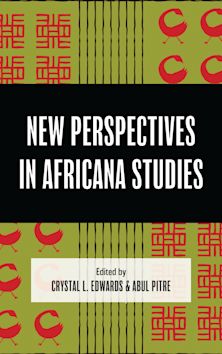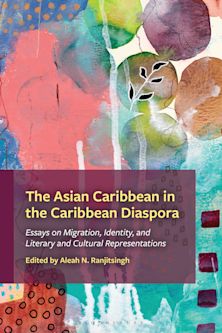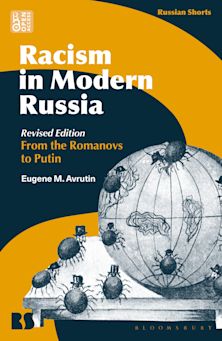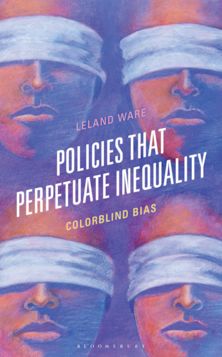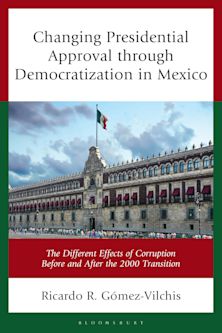- Home
- ACADEMIC
- Politics & International Relations
- Race and Ethnicity
- Communicating Food in Korea
Communicating Food in Korea
Jaehyeon Jeong (Anthology Editor) , Joong-Hwan Oh (Anthology Editor) , Namsoo Chang (Contributor) , Hong Sik Cho (Contributor) , Haney Choi (Contributor) , Hye Won Chung (Contributor) , Ji-Yun Hwang (Contributor) , Hee Sun Jeong (Contributor) , Jaehyeon Jeong (Contributor) , Nami Joo (Contributor) , Dong-Yeob Kim (Contributor) , Hak-Seon Kim (Contributor) , Jeehee Kim (Contributor) , Eun-Jin Lee (Contributor) , Jee Hye Lee (Contributor) , Youngmin Lee (Contributor) , Chaisung Lim (Contributor) , Seungsook Moon (Contributor) , Joong-Hwan Oh (Contributor) , Hyunseo Park (Contributor) , Youngil Park (Contributor) , Joung-Min Son (Contributor) , Wonkyu Song (Contributor) , Sohyon Yi (Contributor) , Byeong-Seon Yoon (Contributor)
Communicating Food in Korea
Jaehyeon Jeong (Anthology Editor) , Joong-Hwan Oh (Anthology Editor) , Namsoo Chang (Contributor) , Hong Sik Cho (Contributor) , Haney Choi (Contributor) , Hye Won Chung (Contributor) , Ji-Yun Hwang (Contributor) , Hee Sun Jeong (Contributor) , Jaehyeon Jeong (Contributor) , Nami Joo (Contributor) , Dong-Yeob Kim (Contributor) , Hak-Seon Kim (Contributor) , Jeehee Kim (Contributor) , Eun-Jin Lee (Contributor) , Jee Hye Lee (Contributor) , Youngmin Lee (Contributor) , Chaisung Lim (Contributor) , Seungsook Moon (Contributor) , Joong-Hwan Oh (Contributor) , Hyunseo Park (Contributor) , Youngil Park (Contributor) , Joung-Min Son (Contributor) , Wonkyu Song (Contributor) , Sohyon Yi (Contributor) , Byeong-Seon Yoon (Contributor)
This product is usually dispatched within 2-4 weeks
- Delivery and returns info
-
Flat rate of $10.00 for shipping anywhere in Australia
You must sign in to add this item to your wishlist. Please sign in or create an account
Description
An in-depth investigation of the complex relationships among food, culture, and society, Communicating Food in Korea features contributors from a variety of disciplines, including economics, political science, communication studies, nutrition research, tourism research, and more. Each chapter presents a unique interpretation of food’s economic, political, and sociocultural relevance. Situated in Korea’s shifting historical contexts, contributors explore themes, such as colonialism, food symbolism, gastronationalism, multiculturalism, food tourism, food security, and food sovereignty to research the ways food intersects with social issues in Korean society.
Table of Contents
Jaehyeon Jeong and Joong-Hwan Oh
Part I: From Colonialism and Hunger to Food Sovereignty
Chapter 1: Reclamation Projects and Development of Agricultural Land in Colonial Korea
Chaisung Lim
Chapter 2: The Narrative of Post-Childhood and Memories of Food: Study on the Symbolism of Food in Korean Postwar Formation Novels
Soh-yon Yi
Chapter 3: Addressing the Agri-Food Crisis in Korea: Implications of Food Sovereignty and the UN Declaration on the Rights of Peasants
Byeong-Seon Yoon and Wonkyu Song
Part II: National Cuisine in the Era of Globalization
Chapter 4: Food and Nationalism: Kimchi and Korean National Identity
Hong Sik Cho
Chapter 5: Buddhist Temple Food in South Korea: Interests and Agency in the Reinvention of Tradition in the Age of Globalization
Seungsook Moon
Chapter 6: The Reinvention of Traditional Cuisine as Counterculture
Jeehee Kim
Chapter 7 Taste of Korea: Governmental Discourse on National Cuisine and its Articulation of Nation-ness
Jaehyeon Jeong
Part III
Product details
| Published | 31 Jan 2023 |
|---|---|
| Format | Paperback |
| Edition | 1st |
| Extent | 276 |
| ISBN | 9781793642271 |
| Imprint | Lexington Books |
| Illustrations | 20 b/w photos; 32 tables; |
| Dimensions | 224 x 153 mm |
| Series | Korean Communities across the World |
| Publisher | Bloomsbury Publishing |
About the contributors
Reviews
-
This edited volume includes a baker's dozen of chapters by scholars at Korean and American institutions, organized around four major themes: moving from colonialism and hunger to food sovereignty; national cuisine in the era of globalization; food practices in multicultural Korea; and food tourism as related to food crisis. Because food and foodways can serve as a marker of social status and belong to the domain of customs and beliefs, as well as offering intersections with many other economic and political factors, this interdisciplinary work collects research from diverse fields including political science, communication studies, geography, and nutrition…the writing throughout is unmistakably scholarly[.] Recommended.
Choice Reviews
-
Communicating Food in Korea is a valuable contribution to the relatively new and burgeoning field of food studies. Editors Jaehyeon Jeong and Joong-Hwan Oh approach their topic from uniquely non-Western angles (all 23 contributors are native Korean), using a variety of analytical techniques (historical method, interview, questionnaire, and textual analysis), and covering a very wide swath of topics. Organized under sections on colonialism/hunger to food sovereignty, national cuisine in a globalization era, food practices in multicultural Korea, and food tourism and food crisis, the book plumbs the depths of Korean food culture to show that cuisine acts as a major means of social communication and cultural signification. For these reasons, Communicating Food in Korea is groundbreaking, comprehensive, and eye-opening, welcomed in the research arena, classroom, and the policy-making offices.
John A. Lent, Professor Emeritus, Temple University
-
This fascinating edited volume provides thought-provoking and theoretically rich insights into diverse scholarly issues, including the construction of traditions, identity, (post-)colonialism, nationalism, globalization, neoliberalism, and cultural hybridity in Korean cuisine in the twentieth and twenty-first centuries. This book is a valuable addition to the ever-growing canon of food scholarship in Korean cuisine from varied disciplines. Anyone interested in Korea or in food culture will be captivated by this multi-dimensional account of the intersection between food, culture, history, and society.
Seok Lee, University of Pennsylvania
-
[This] volume contributes to the literature in a number of fields, and sheds light on the complexity—and richness--of a food culture only now being recognized in the U.S. mainstream. Perhaps most significantly, it offers perspectives from within a culture not often seen by Western scholars, providing a more global context for examining issues of crucial concern.
Journal of Folklore Research
-
This collection of essays is a good introduction to current food policies and practices in South Korea as of the second decade of the Twenty-First Century. It provides an ample historical background and an ample bibliography for the new reader unfamiliar with these developments. Many of the essayists suggest directions for future research. Given the rise of South Korean food worldwide and its connections to South Korean cultural developments, especially K-Pop, this research should continue. The book is appropriate for upper-division and graduate students in the social sciences and in policy programs.
Food Anthropology

ONLINE RESOURCES
Bloomsbury Collections
This book is available on Bloomsbury Collections where your library has access.












